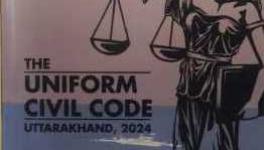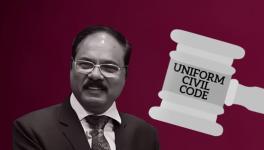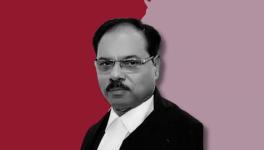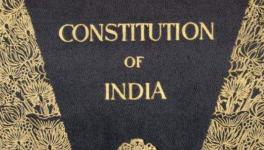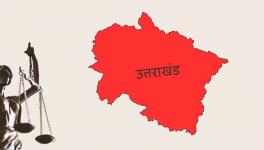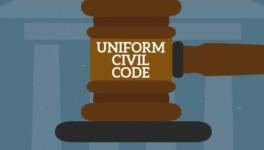What does the Citizens Draft of the Egalitarian Uniform Civil Code Say?
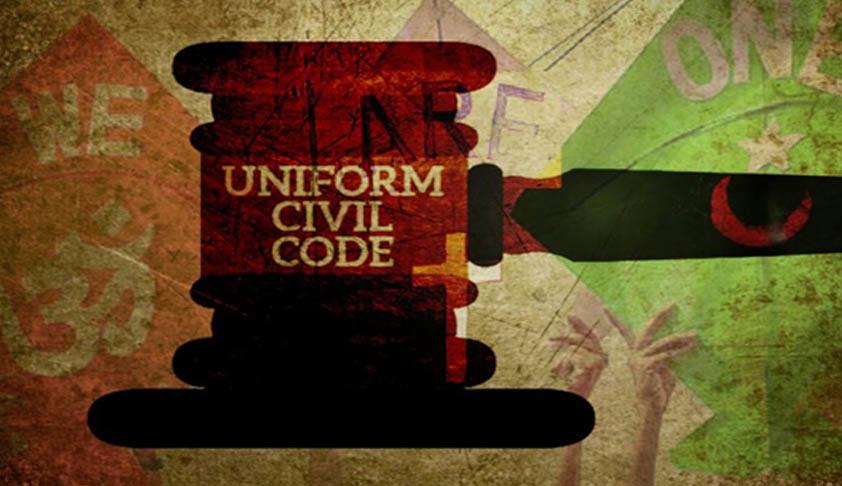
Image Courtesy: Livelaw
Sabrangindia has exclusively accessed the draft of the uniform civil code submitted to the Law Commission by a group of eight eminent citizens, including scholars, a retired senior Army officer, a Magsaysay award-winning activist, writers, classical singer and a legal luminary.
What does this Code Say?
A Fact Sheet:
Premise Behind the Need for Such a UCC:
Whereas, India has various personal laws of various communities that govern the issues of marriage, divorce, inheritance and succession amongst these communities.
And whereas, some of these personal laws, such as those of Hindus, Christians and Parsis are codified through legislations with some measure of reform, others such as those of Muslims, Tribal, Adivasi People, etc. have remained largely uncodified.
And whereas, irrespective of whether these laws are codified or uncodified, in so far as the terms they set for marriage, divorce, child custody, guardianship and inheritance, they are not always equitable and fair and do discriminate on grounds of gender, sex and secuality.
And whereas, in the 70th year of the Indian Republic, it has become necessary and expedient to ensure that all citizens of India, irrespective of their gender, sex and sexuality, religious or cultural traditions and beliefs (including non-believers such as atheists and agnostics) are entitled to equal rights in marriage, divorce, child custody, guardianship and inheritance and succession, in line with globally accepted values of human rights, be it enacted as follows:
Marriage
(1) Any two persons, who satisfy the preconditions of marriage, may marry each other, either as per their religious or customary practice, or before the Registrar of Marriages.
(2) Irrespective of whether the marriage is solemnized as per the religious or customary practice or in a secular manner before the Registrar of Marriages, the rights and obligations from all such marriages shall be identical, and all such marriages shall be compulsorily registered in the urban local body or village panchayat in whose territorial area such marriage has been solemnized or entered.
Same Sex Marriage
In case of non-heterosexual marriages, the fact that the religious or customary practices do not permit such marriages or prohibit such marriages, will not be a bar against such marriage and the Registrar of Marriages will have all such powers to ensure solemnization of such marriage, including exercising due discretion in directing police protection for the couple who are entering / have entered such marriage.
Partnerships
(1) Any two persons who have been in a partnership for more than two years shall have the same rights and obligations towards each other as a married couple.
(2)Any person cannot be in more than one partnership and / or marriage at a time and can enter into a second marriage / partnership only once the earlier marriage has legally ceased or the earlier partnership has factually ceased.
Right to Adopt
(1) Notwithstanding any contrary religious or customary edict, all married couple and couples who are in partnership, will be entitled to adopt a child.
(2)The sexual orientation of the married couple or couple in partnership will not be a bar to their right to legally adopt a child. Non-heterosexual married couples, or couples in partnership will be equally entitled to legally adopt a child as heterosexual couples in similar relationships. The adopted child may be of either sex or transgender.
Divorce
(1) Any married person is entitled to divorce on the following grounds:
a) Mutual Consent Divorce based on the agreement of both the persons in the marriage,
b) On account of irretrievable breakdown of marriage,
c) On account of physical or mental cruelty by the spouse,
d) On account of mental unsoundness of the spouse,
2) A Divorce shall be granted by the District Court or the appropriate Civil Court, as the case may be, on an application by the person seeking it and after hearing the other spouse.
3) It is clarified that no non-judicial decree of divorce will have any legal effect.
Custody of Child
(1)In case of Divorce, whether the child, biological or adopted, be given into the joint custody of the parents or given in custody of one parent over the other parent, will be determined by the Court granting divorce, taking solely into account, the best interest of the child.
2)In case of factual breakdown of partnership, the District Court where the partners last resided when the partnership subsisted will decide the issue of custody of child, taking solely into account the best interest of the child.
3)It is clarified that while determining the best interest of the child, the religion or sexual orientation of the custodial parent will not be a relevant factor.
Succession and Inheritance
(1) Every person, whether adopted or biological, upon the parent’s death, will have an equal share along with the surviving parent in the property of the deceased parent, irrespective of their gender, sexual orientation or religion.
2) The spouse / partner, siblings or parents of a deceased person will have a right in the deceased persons’ property only if the deceased died without a child, in the manner detailed hereinafter.
3) If the deceased person dies without a child, the property shall be equally shared between his parents getting one part (fifty percent) and the spouse / partner getting the other part (fifty percent) and no share will go the deceased person’s siblings.
4) If the deceased person dies without a child and without parents, the entire property will pass on to the spouse / partner, and no share will go the deceased person’s siblings.
5) If the deceased person dies without a child, without parents, and without spouse / partner, then the entire property shall be shared equally between the surviving siblings.
6) If the deceased person dies without a child, without parents, without spouse / partner, and without siblings, then the entire property shall belong to the State, which shall use the proceeds of sale or income from such property for social welfare programs.
7) If a child or children, as the case may be, acquire property pursuant to clause (1) of this section, then it will be incumbent on them to take care and be financially responsible for the surviving parent, in case the surviving parent does not have sufficient means to take care of himself/herself.
8) In case a child or children, as the case may be, fail to discharge their obligation under clause 7 above, it shall be lawful for the surviving parent to make an application seeking transfer of the property of his / her deceased spouse / partner or an equivalent amount from the child / children to himself / herself.
9) Nothing in this section shall apply to self-acquired property, it shall be lawful for any person to will or gift any part of all their self-acquired property to any person or persons and in such manner as he / she may deem fit. However, if a person dies intestate, then even the self-acquired property will be distributed in the same manner as envisaged in this section.
The Existence of the UCC Demands the Following
Dissolution of Hindu Undivided Family
(1) From the date this Act comes into effect, the Hindu Undivided Family (HUF) will cease to have any legal sanction and all the properties held by any such HUF shall be deemed to have been equally divided amongst all the coparceners.
2) Nothing in clause 1 will impact anything that has been done prior to this Act coming into force.
Duties of Government.- The Central Government and every State Government, shall take all measures to ensure that-
(a) the provisions of this Act are given wide publicity through public media including the television, radio and the print media at regular intervals;
(b) the Central Government and State Government officers including the police officers and the members of the judicial services are given periodic sensitization and awareness training on the issues addressed by the Act;
(c) effective co-ordination between the services provided by concerned Ministers and Departments dealing with law, home affairs including law and order, health and human resources to address effective implementation of this act is established and periodical review of the same is conducted;
Overriding effect – Unless a different intention appears, in case of conflict between the provisions of this Act and any other law in force, the provisions of this act shall prevail.
Repeal and Saving- (1) The following Acts are repealed with immediate effect on this Act coming into force:
(a) The Hindu Marriage act, 1955
(b) The Hindu Succession Act, 1956
(c) The Muslim Personal Law (Sharia) Application Act, 1937
(d) The Dissolution of Marriages Act, 1939
(e) The Indian Christian Marriage Act, 1872
(f) The Parsi Marriage and Divorce Act, 1936
(2) Notwithstanding such repeal, unless a different intention appears, the repeal shall not affect the previous operation of any enactment so repealed or anything duly done or suffered thereunder, or affect any right, privilege,
obligation or liability acquired, accrued or incurred under any of the repealed enactments.
The copy of the submitted draft may be read here.
Disclaimer: The views expressed here are the author's personal views, and do not necessarily represent the views of Newsclick
Get the latest reports & analysis with people's perspective on Protests, movements & deep analytical videos, discussions of the current affairs in your Telegram app. Subscribe to NewsClick's Telegram channel & get Real-Time updates on stories, as they get published on our website.










